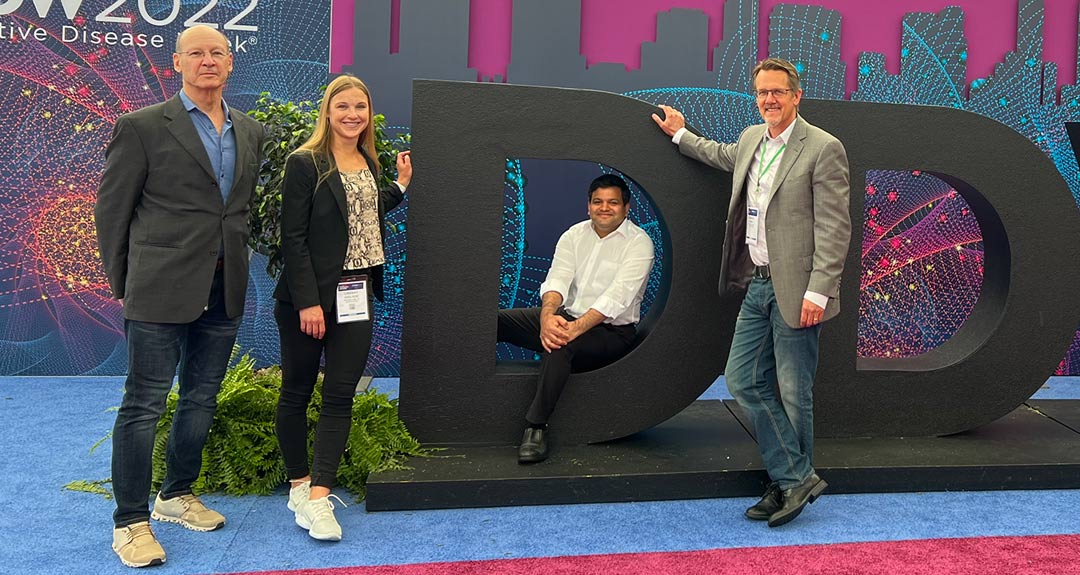
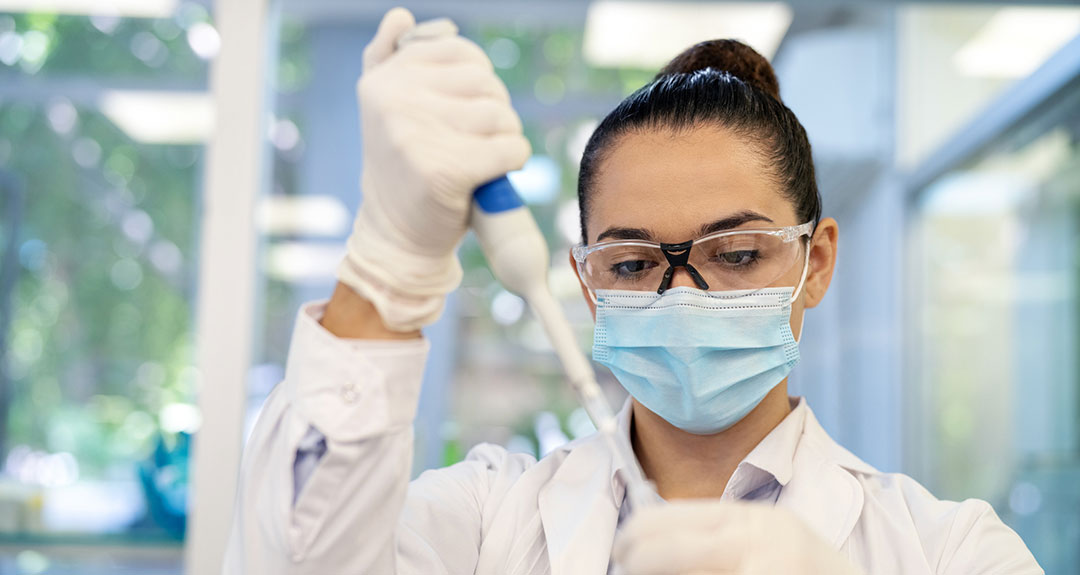
Photo credit: Alvarez, Getty Images
The Rainin Foundation provides early support for novel ideas that can lead to breakthroughs in IBD research.
Advancing Patient-Centered Research
The Kenneth Rainin Foundation believes that early support for innovative ideas can lead to improvements in preventing, diagnosing and treating Inflammatory Bowel Disease (IBD). In 2022, our grantees made exciting progress on insights and treatments toward improving quality of life for those living with the disease. We responded to ongoing uncertainty and evolving challenges in the biomedical research landscape and remained focused on advancing equity in the field.
“Meaningful change can only happen if we are in close partnership with the scientists and researchers we support. Like the biomedical research field itself, philanthropy has the greatest impact when it is grounded in learning and collaboration.”
—Shelley Trott, Chief Program Officer
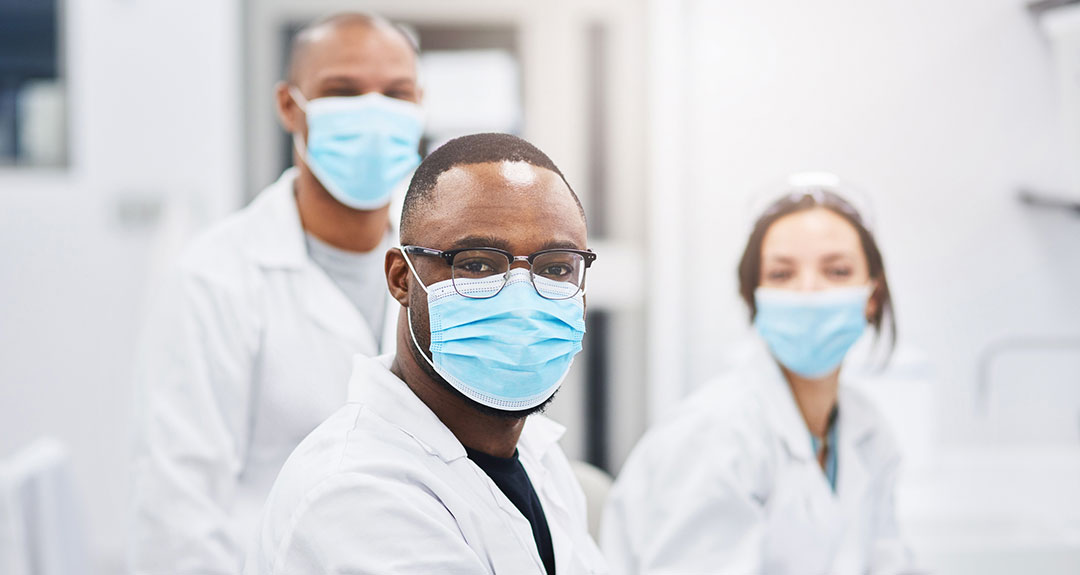
Photo credit: Adene Sanchez, Getty Images
Scientists continue to adapt to an ever-evolving research landscape.
Adapting To An Evolving Landscape
Ongoing pandemic impacts have led to an evolving and uncertain landscape for scientists globally. Many research labs and institutions are stabilizing their operations after significant pandemic disruptions. The field is also leveraging the flexibility of hybrid approaches to accessing and connecting with the research community. Yet accumulated pandemic-driven disruptions continue to delay research progress, particularly in clinical trials. Turnover and shortages in lab and hospital staffing have driven the need to prioritize care over research. Researchers also contended with pandemic-related hesitancy in recruiting participants for studies at health facilities. Internationally, overburdened health care systems are forcing researchers to rethink their project aims and funding assumptions.
To support our grantees, we stay connected and listened to ensure our responses are informed by their experiences and priorities. Our continued flexibility, such as no-cost extensions, applies to our own practices as well. Pandemic-driven change and uncertainty is requiring all of us to adjust to an ever-evolving landscape.
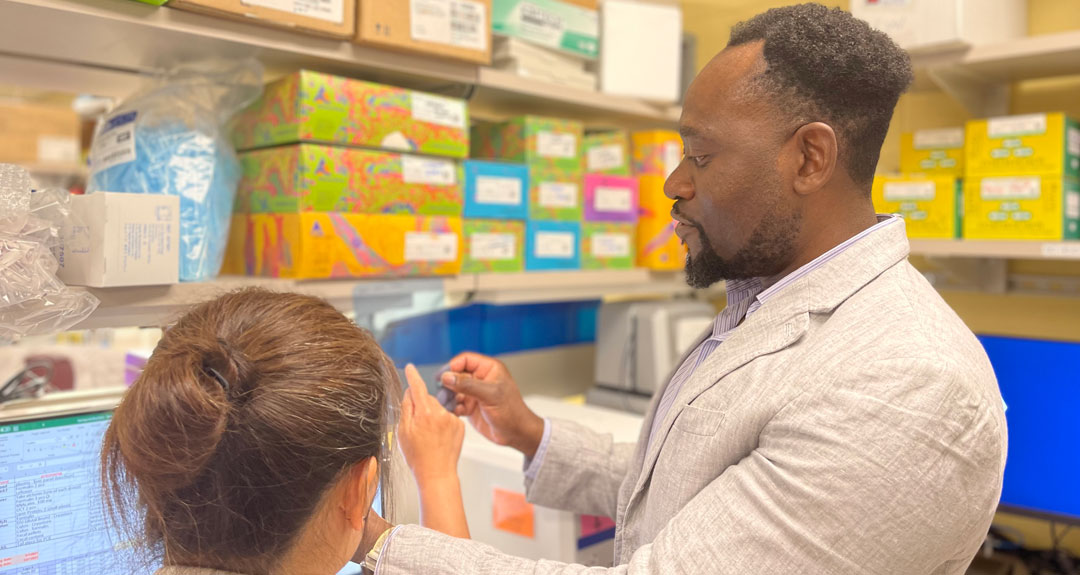
Photo courtesy of Dr. Bamidele.
Dr. Adebowale Bamidele’s research at the Mayo Clinic is advancing the understanding of the role of CD4 T lymphocytes in the initiation and progression of IBD.
Investigating Complex IBD Puzzles
Our 2022 Innovator Awards highlight novel ideas and therapeutic avenues to improve the lives of people with IBD. Grantees include an equal number of early career and veteran IBD investigators and reflect a spectrum of biomedical science areas. Projects address complex research puzzles, including those related to “therapy resistance,” the gut-brain connection and the microbiome:
- Adebowale Bamidele, PhD, Mayo Clinic, aims to identify the metabolic vulnerabilities of IBD CD4 T cells to guide the development of new therapies. His lab is especially focused on IBD patients who are resistant to available treatments.
- Immunologist Ruaidhrí Jackson, PhD, Harvard Medical School, studies IBD-driven disruptions on the “second brain” functions of the enteric nervous system. He is investigating preliminary findings that this enteric nervous system acts to inform other organs as both a protective mechanism and an inflammatory complication in IBD.
- At Washington University School of Medicine, Ta-Chiang Liu, MD, PhD and Umang Jain, PhD are focused on D. hansenii, a pathogenic fungi unique to Crohn’s disease patients. Their collaborative study aims to identify a link between the most common Crohn’s disease-related genetic mutation and fungal infection.
“We value early-stage research and appreciate the potential of early career researchers whose new lines of thinking invigorate the field and benefit from the experience of those who’ve come before them.”
—Laura Wilson, PhD, Director, Health Strategy & Ventures
GRANTEE MILESTONE
Photo courtesy of G-Tech Medical.
G-Tech Medical is developing a wireless, wearable patch system that could transform how doctors monitor changes in gut motility and how patients with gastrointestinal disorders understand their disease. While it has a number of applications, the ultimate goal of the system is to help quickly target the best treatment for IBD patients. Dr. Steve Axelrod, Lindsay Axelrod and Dr. Anand Navalgund share more about this promising technology.
Leading Edge Research Builds Momentum
Playing the long game is inherent to scientific research to cure complex chronic diseases like IBD. Our early-stage funding sets in motion research with the potential for exciting breakthroughs. We were thrilled that our grantees gained traction and recognition for their research. Two high profile journals published findings connected to early-stage research supported through our Innovator Awards Program in 2015.
- Iliyan Iliev’s lab at Weill Cornell Medicine progressed to more variant-specific insights about Candida albicans yeast, reported in “Nature.” Their analysis of individual strains of C. albicans in people with and without ulcerative colitis suggest avenues for personalized therapeutics.
- Kate Jeffrey’s former lab at Massachusetts General Hospital built on research we supported in 2015. Her collaborative work investigated the protective roles of viruses that make up the enteric virome. That led to a large cross-disciplinary study, with findings published in “Science.”
The Rainin Foundation’s investments have also been vital to advancing patient-centered technologies from concept to clinical trials. G-Tech Medical’s wearable patch, which monitors gut motility, gained pre-market clearance from the FDA and attracted interest from a major pharmaceutical company. They are also launching numerous clinical trials that will test different applications for the patch. And Dr. Ali Rezaie and his team at Cedars Sinai finalized their device design, which uses ultraviolet (UV) light to treat ulcerative proctitis. They are moving toward their first in-human trial with their partner clinic in Santiago, Chile.
“Patients have most of their symptoms when they’re at home or work, not at the doctor’s office. Our system travels with patients as they experience life and their symptoms.”
—Anand Navalgund, PhD, Director of Clinical Science, G-Tech Medical
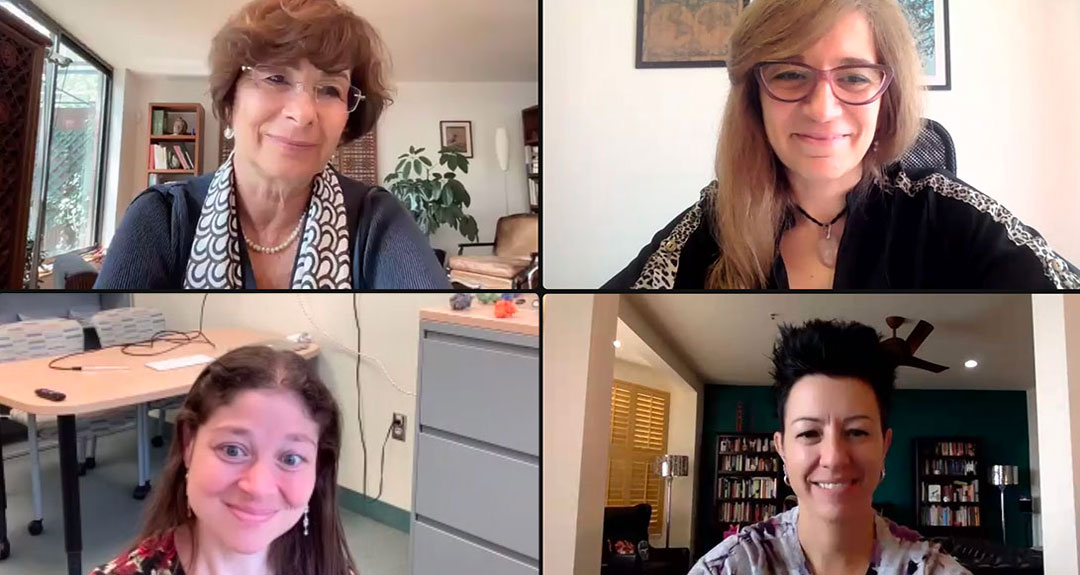
Photo credit: Kenneth Rainin Foundation
Clockwise from top left: Dr. Bana Jabri, Dr. Karina Mariño, Dr. Laura Wilson and Dr. Jamie Spangler during a panel discussion at our 2022 virtual Symposium.
Connecting Innovators And Diverse Research Perspectives
Each year our Innovations Symposium brings scientists together to share new ideas and exchange diverse perspectives in IBD research. Over 300 people from around the world tuned in to our 2022 virtual Symposium. Seasoned experts and emerging innovators were joined by students, clinicians, funders and editors of science and health journals.
The event showcased novel and cross-disciplinary insights that we hope generate new avenues for research and collaboration. Presenters shared an array of findings in immunity and inflammation, healing and diet and the gut microbiome. They also highlighted progress in translating biomedical research into clinical applications and therapeutics that target patient well-being. The Foundation’s Scientific Advisory Board facilitated panel discussions and question and answer sessions. Their diverse research perspectives are essential to shaping our annual Symposium.
Earlier in the year, the Scientific Advisory Board welcomed Dr. Janelle Ayres, a molecular and systems physiologist at the Salk Institute. Her provocative insights about bacterial infections and immune response have profound implications for new therapies. Longtime advisor Dr. Bana Jabri, an advocate for translational science, early career researchers and gender equity, was named Board Co-Chair. The Advisory Board bid farewell to Co-Chair Dr. Tejal Desai and longtime member Dr. Michael Fischbach. We are grateful for the invaluable guidance they provided to our Health grantmaking and strategies.
“The diverse expertise and groundbreaking perspectives on our Scientific Advisory Board are central to advancing our investments in innovative IBD research that improve patients’ lives.”
—Laura Wilson, Director, Health Strategy & Ventures
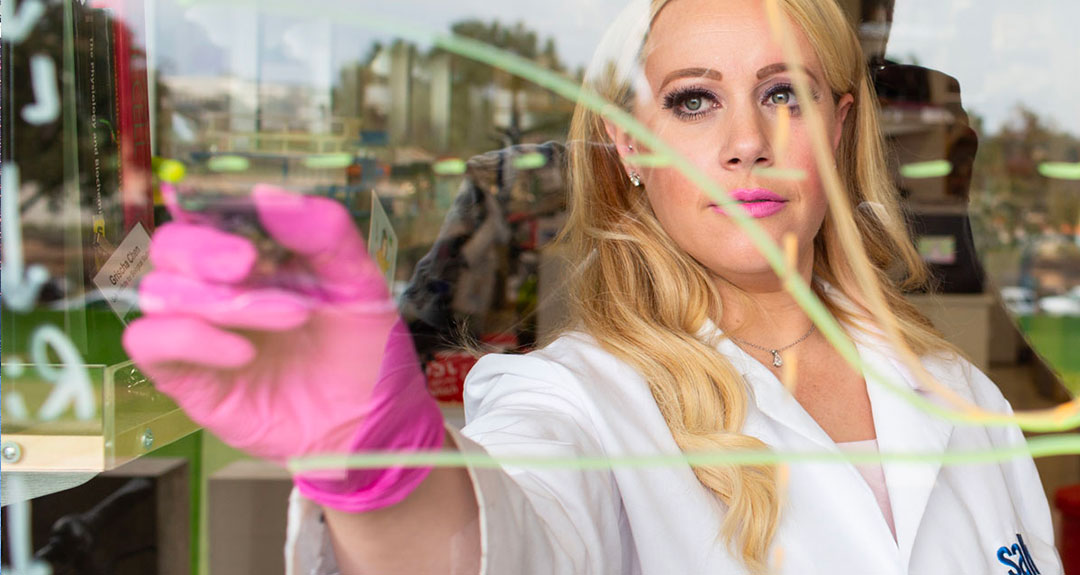
Photo credit: Salk Institute
Rainin Foundation Scientific Advisory Scientific Advisory Board Member Janelle Ayres in her lab at the Salk Institute.
Fostering Equity In Biomedical Research
Our journey toward greater equity in our grantmaking and in the biomedical research field continued. The Foundation’s new learning and evaluation framework defines and clarifies our desired impacts on biomedical research. We are grateful to the cohort of strategic partners, advisors and grantees who helped ensure the evaluation would be equitable and meaningful to us and the field at large. We identified three strategic indicators to guide our Health grantmaking and catalyze research that:
- Expands the field of IBD researchers
- Leads to additional or increased funding from other sources
- Advances research to benefit patients through new collaborations, published findings and clinical trials
As part of our learning and evaluation process, we will continue engaging our colleagues and partners to better understand their needs and aspirations.
We also participated in a small cohort of biomedical research funders through the Open and Equitable Model Funding Program. Our aim is to make grantmaking practices, peer review processes and the resulting research outputs more transparent, inclusive and equitable. Using a community of practice model, our learning cohort is testing a variety of interventions to share lessons learned with the wider community.
To continue to address equity gaps in our grantmaking, our Health Program staff participated in unconscious bias training. We also expanded our outreach for grant opportunities and began building relationships with historically underrepresented researchers and research institutions. We are committed to advancing this work to make meaningful change.
“The sustained funding from the Rainin Foundation allows us to delve deep into the biology of intestinal tissue repair and develop new regenerative therapies for IBD.”
—Shruti Naik, PhD, New York University Grossman School of Medicine
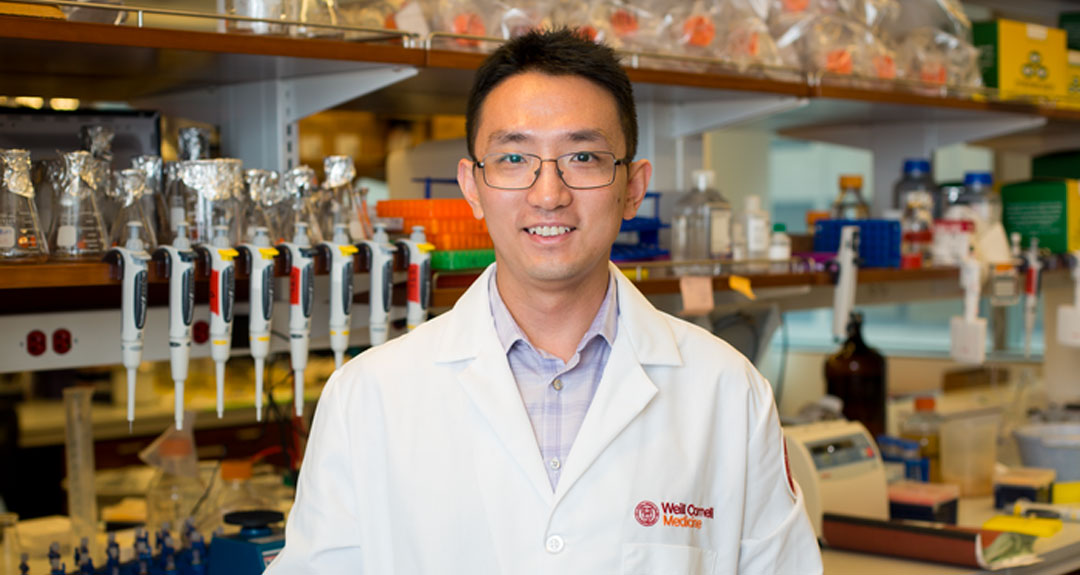
Photo credit: Ashley Jones / Weill Cornell
Dr. Chun-Jun Guo, 2022 Innovator Award grantee, in his lab at Weill Cornell Medicine.
Investing In Innovators:
2022 Grantees
The Rainin Foundation invested over $5.1 million in 2022 to support IBD research.
Health grantmaking supports groundbreaking ideas that have the potential to dramatically transform the prediction and prevention of Inflammatory Bowel Disease.
Note: Financials are subject to audit verification.
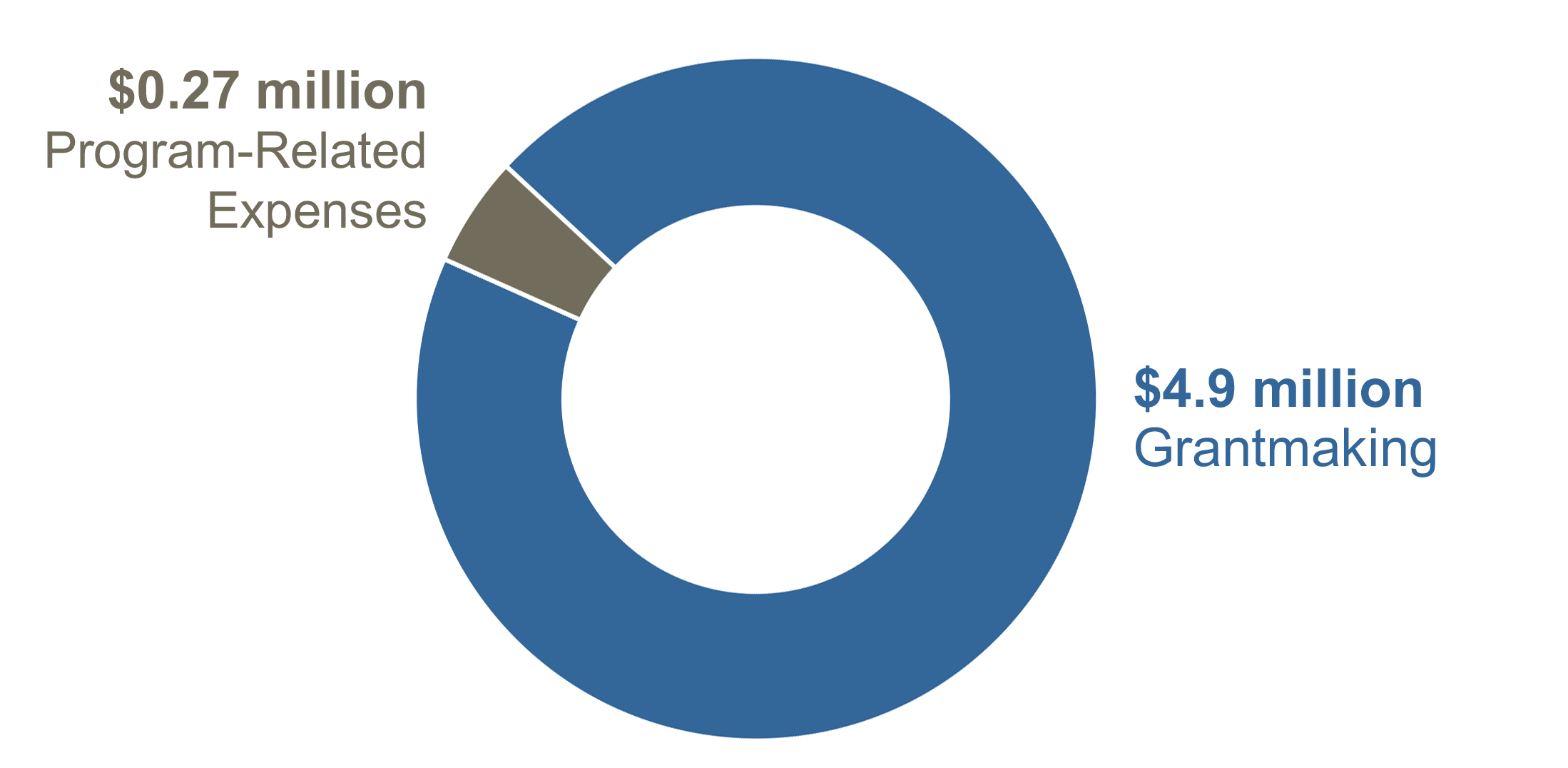
INNOVATOR AWARDS
Grants support an international pool of early-career and seasoned researchers to study untested ideas that could lead to breakthrough discoveries about IBD. Learn more about the 2022 Innovator Award grantees.
Adebowale Bamidele, PhD, Mayo Clinic
Gloria Choi, PhD, Massachusetts Institute of Technology
Marco Colonna, MD, and Marina Cella, MD, Washington University School of Medicine
Gregory Fairn, PhD, Dalhousie University, and Brian Raught, PhD, University of Toronto
Chun-Jun Guo, PhD, Weill Cornell Medicine
Ruaidhri Jackson, PhD, Harvard Medical School
Maia Kayal, MD; Jeremiah Faith, PhD; Jean-Frédéric Colombel, MD; Ari Grinspan, MD; and Saurabh Mehandru, MD, Icahn School of Medicine at Mount Sinai
Meghan Koch, PhD, Fred Hutchinson Cancer Research Center
Ta-Chiang Liu, MD, PhD, and Umang Jain, PhD, Washington University School of Medicine
Eric Martens, PhD, University of Michigan
David Montrose, PhD, Stony Brook University, and Giovanni D’Angelo, PhD, Swiss Federal Institute of Technology Lausanne
Timothy Nice, PhD, Oregon Health & Science University
Roni Nowarski, PhD, Brigham and Women’s Hospital
Ronen Sumagin, PhD, and Stephen Hanauer, MD, Northwestern University
Garth Swanson, MD, MS, and Nethanel Zilberstein, MD, Rush University Medical Center
Jhimmy Talbot, PhD, Fred Hutchinson Cancer Research Center
Xu Zhou, PhD, The Children’s Hospital Corporation
INNOVATOR AWARDS – CONTINUED SUPPORT
Grants support an international pool of early-career and seasoned researchers to study untested ideas that could lead to breakthrough discoveries about IBD. Research teams who demonstrate significant progress toward their original goals are eligible for up to two years of additional support. Learn more about the 2022 Innovator Award grantees.
Theresa Alenghat, VMD, PhD, Cincinnati Children’s Hospital Medical Center
Greg Barton, PhD, University of California, Berkeley
Isaac Chiu, PhD, Harvard Medical School
Andy Goodman, PhD, Yale University
Carrie Lucas, PhD, Yale University
Shruti Naik, PhD, New York University Grossman School of Medicine
Francesca Petralia, PhD, Jean-Frédéric Colombel, MD, and Zeynep H. Gümüş, Icahn School of Medicine at Mount Sinai
Carla Rothlin, PhD, Yale University
Eran Segal, PhD, Weizmann Institute of Science
Katja Simon, PhD, University of Oxford
SYNERGY AWARDS – CONTINUED SUPPORT
Grants support cross-disciplinary teams of researchers who are pursuing collaborative projects aimed at improving the prediction and prevention of IBD. Research teams who demonstrate significant progress toward their original goals are eligible for up to two years of additional support. Learn more about the 2022 Synergy Award grants.
Charles Elson, MD, University of Alabama at Birmingham
Andrei Ivanov, PhD, and Florian Rieder, MD, Cleveland Clinic
Markus Neurath, MD, and Arif Ekici, PhD, Friedrich-Alexander-Universität Erlangen-Nürnberg, and Klaus Gerwert, PhD, Ruhr-Universität Bochum
Gwendalyn Randolph, PhD, Washington University; Alison Kohan, PhD, University of Pittsburgh; and Michael Davis, PhD, University of Missouri
Hermann Steller, PhD, Rockefeller University; Yaron Fuchs, PhD, Technion–Israel Institute of Technology; and Hayim Gilshtein, MD, Rambam Medical Center
Thomas Walz, PhD, Rockefeller University; Howard Hang, PhD, Scripps Research; and Ken Cadwell, PhD, New York University School of Medicine
Explore the Foundation’s website to learn more about our Health program and meet our staff and Board members.

